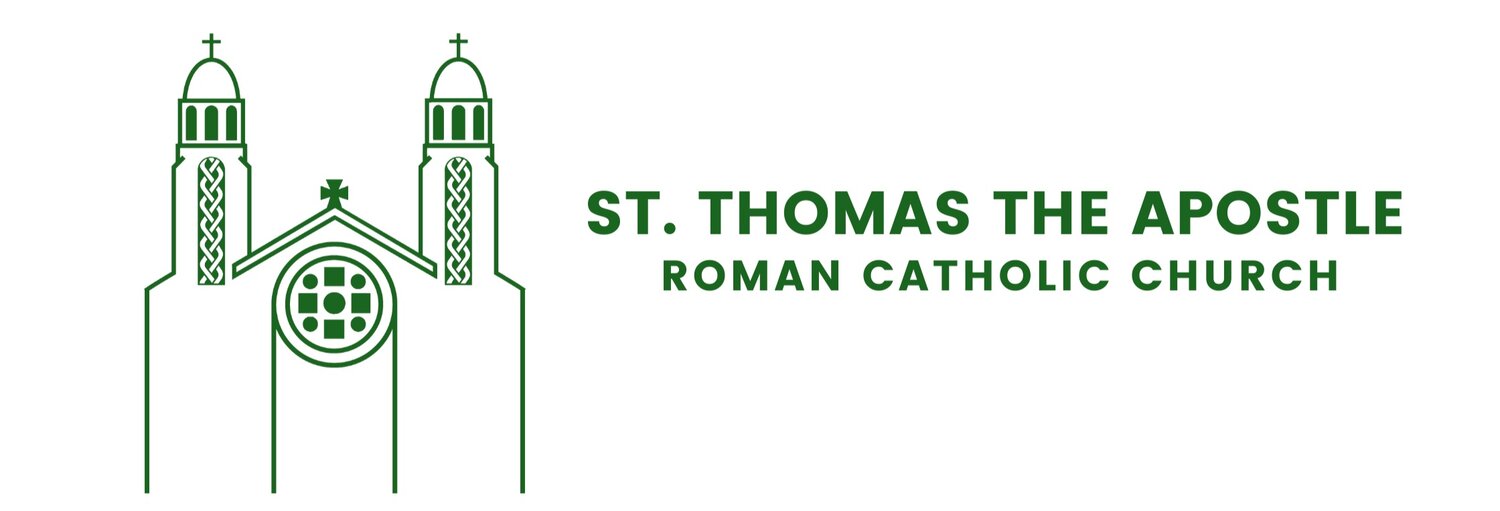Planning a Funeral
“He will wipe every tear from their eyes. There will be no more death, or mourning or crying or pain, for the old order of things has passed away.”
The clergy, staff, and parish community at St. Thomas the Apostle Church wish to express their deepest condolences on your recent loss.
To begin the process of planning the funeral, please contact the Parish Office at (973) 338-9190.
For your convenience, our Funeral Packet is provided below. It may be printed and dropped off in-person, or completed and emailed to susan.laurenzo@stachurchbloomfield.org.
Additionally, you are invited to peruse a list of FAQ’s designed to help answer frequently asked questions and provide guidance while navigating the process of Catholic burials and funerals. Please scroll down to find it below, or click the button to download.
Do you need extra emotional and spiritual support in your time of bereavement? Please visit the Bereavement Ministry page to get the help you need.
Funerals & Cremation FAQ’s
Can those who have died as a result of suicide be buried from the Church?
Yes. Previous laws forbidding such have been changed. The Order of Christian Funerals (OCF) include prayers for this circumstance (cf: 20 prayers & Texts in Particular Circumstances, 44)
Are Catholics allowed to be cremated?
Yes. The Catholic Church Recommends, and in fact prefers, the pious custom of burying of the faithful, out of respect for the body that has given evidence of God’s spirit enlivening our souls which are destined to be raised on the great Day of Resurrection. Yet, the Church allows for cremation of the body as long as it is not an intentional denial of the Church’s teaching regarding the Resurrection of the body. It should be noted that the Order of Christian Funerals is arranged in such a way that cremation of the deceased takes place after the funeral liturgy and not before it (413). However, when this is not possible, the cremated remains may be present for the Funeral Liturgy, either at the Mass or Outside Mass.
Some cremation processes, such as “flameless Cremation,” are contrary to Catholic moral principles.
Is the urn containing the cremated remains covered with a pall at the beginning of the Funeral Liturgy?
No. According to the Order of Christian Funerals, when the Funeral Liturgy is celebrated in the presence of the cremated remains, the priest, with the assisting ministers, goes to the door of the church and greets those present. The priest then sprinkles the cremated remains with holy water, but the covering of the cremated remains with a pall is omitted. (434)
What is to be done with cremated remains following the Funeral Liturgy, either at Mass or outside of Mass?
Cremated remains must be treated with the same respect as would be attributed to the body. After the Funeral Liturgy, the cremated remains are to be either interred or entombed, preferably in a Catholic cemetery, mausoleum, or columbarium. The Rite of Committal as provided in the Order of Christian Funerals should accompany this action.
Cremated remains should NEVER be separated or scattered or disposed in any way other than a dignified internment or entombment.
Neither is it permissible for cremated remains to be kept in the family home or used in decorative jewelry (lockets, bracelets, etc., containing ashes, for example).
What Scripture readings are allowed?
There are over fifty Scripture readings which the Church has specifically made available for the Funeral Liturgy (See Lectionary For Mass, Volume IV, #1011-1026). Non-Scripture readings are not permitted.
On what days are Funeral Masses not allowed?
Funeral Masses can be celebrated on any day except on Holy Days of Obligation, Good Friday, Holy Saturday, Easter and the Sundays of Advent, Lent, and the Easter seasons. On these days on which the celebration of a Funeral Mass is prohibited, the Funeral Liturgy outside of Mass with the distribution of Holy Communion is permitted followed by the Rite of Committal. In this circumstance, a Memorial Mass for the deceased may be held at a time and day which is convenient for both the parish and the family.
Are Funeral Masses allowed in a Funeral home?
No. Funeral Masses are not allowed in Funeral homes. The Order of Christian Funerals does provide for a Funeral Liturgy outside of Mass which is allowed in a Funeral home.
According to the Order of Christian Funerals, “A member or friend of the family may speak in remembrance of the deceased before the final commendation begins”. (170)
These are to be words of remembrance and are not to be a eulogy.
Although many priests have raised concerns regarding these words of remembrance at the time of the Funeral Mass, family members and friends may be invited by the family to share words of remembrance in the following order of preference:
*at the conclusion of the Vigil service;
*at a reception or luncheon following the Funeral Mass;
*before the Funeral begins;
*following the prayers of committal at the cemetery; or
*prior to the final commendation and farewell at the Funeral Mass.
What about Words of Remembrance during a Funeral Mass?
If words of remembrance are allowed during Funeral Mass, these should be brief (3 to 5 minutes in length) and the pastor MUST receive either an electronic or hard copy of what will be said, by the day before the Funeral Mass is scheduled to take place. There should be no exceptions to this requirement.
Can the Rite of Committal be done at the church?
No. As noted in the Order for Christian Funerals, “The rite of committal…may be celebrated at the grave, tomb, or crematorium…Whenever possible, the rite of committal is to be celebrated at the site of committal, that is, beside the open grave or interment, rather than a cemetery chapel” (204).
“The rite of committal may be celebrated in circumstances in which the final disposition of the body will not take place for some time, for example, when winter delays burial” (109).

